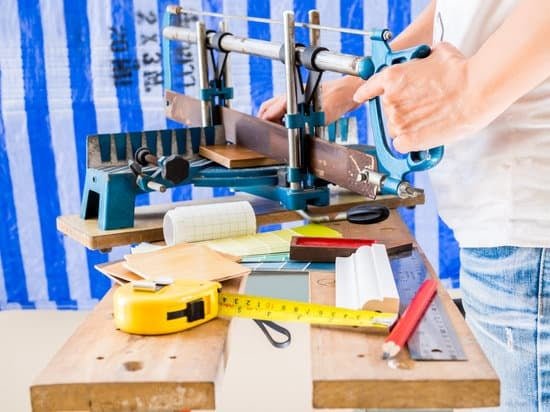Can home improvements be written off on taxes? Understanding the tax implications of home improvements is crucial for homeowners looking to maximize their deductions. Whether it’s a renovation, repair, or energy-efficient upgrade, knowing what qualifies for a tax deduction can have significant financial benefits. This article will provide an in-depth look at home improvement tax deductions, including eligibility criteria, types of deductions, qualifying guidelines, limitations, and restrictions.
Homeowners often underestimate the potential tax benefits of their property investments. It’s essential to have a clear understanding of what can be claimed as a deduction when it comes to home improvements. This knowledge can lead to substantial savings and maximize the value of any upgrades made to the property.
By familiarizing yourself with the various aspects of home improvement tax deductions, you can ensure that you are not missing out on potential savings. From energy-efficient upgrades to medical renovations, there are multiple opportunities for homeowners to benefit from these deductions. Understanding the guidelines and requirements for claiming these deductions is essential in order to leverage them effectively on your tax return.
What Are Home Improvement Tax Deductions?
When it comes to tax deductions for home improvements, it’s crucial to understand what qualifies as a deductible expense and the eligibility criteria for claiming these deductions. Home improvement tax deductions typically apply to expenses that increase the value, efficiency, or accessibility of a taxpayer’s home. Here are some key points to consider when determining what can be written off on taxes for home improvements:
1. Eligible Expenses: Generally, expenses related to home improvements that directly benefit the taxpayer’s primary residence may qualify for tax deductions. This can include costs incurred for renovation, repair, or maintenance projects that enhance the property.
2. Ineligible Expenses: Certain expenses, such as those related to normal repairs and maintenance, do not typically qualify for tax deductions. It’s essential to differentiate between routine upkeep and improvement projects that contribute to the long-term value of the home.
3. Eligibility Criteria: To claim home improvement tax deductions, taxpayers must meet specific eligibility criteria set forth by the IRS. This may include owning and occupying the property as a primary residence and ensuring that the improvements are capital in nature rather than ordinary expenses.
Understanding these aspects of home improvement tax deductions can help homeowners make informed decisions about potential tax benefits resulting from their renovation or upgrade projects. It’s advisable to consult with a tax professional or accountant for personalized guidance based on individual circumstances and applicable regulations.
Types of Home Improvement Tax Deductions
When it comes to home improvement tax deductions, there are various types that homeowners can take advantage of. One common type of deduction is for energy-efficient upgrades. This includes improvements such as installing solar panels, energy-efficient windows, or high-efficiency heating and cooling systems. These upgrades not only benefit the environment but also provide homeowners with the opportunity to claim tax credits or deductions.
Another type of home improvement tax deduction is related to medical renovations. In some cases, individuals with certain medical conditions may need to make specific modifications to their homes for health and safety reasons. These modifications can include adding wheelchair ramps, handrails, or even creating a bedroom or bathroom on the ground floor to accommodate mobility challenges. The costs incurred for these medically necessary home improvements may be eligible for tax deductions.
Additionally, there are deductions available for home office expenses if part of the home is used regularly and exclusively for business purposes. This may include expenses related to renovation or upkeep of the space used as a home office. However, it’s important to note that specific criteria must be met in order to qualify for this type of deduction.
| Home Improvement Tax Deduction | Description |
|---|---|
| Energy-Efficient Upgrades | Incentives for making environmentally friendly upgrades. |
| Medical Renovations | Deductions for home improvements needed due to medical reasons. |
| Home Office Expenses | Deductions related to renovations and upkeep for a home office. |
Qualifying for Home Improvement Tax Deductions
When it comes to qualifying for home improvement tax deductions, it’s essential to understand the guidelines and requirements set forth by the Internal Revenue Service (IRS). In general, home improvements that increase the value of your property or prolong its useful life are eligible for tax deductions.
This can include renovations, additions, and repairs that enhance the overall functionality or efficiency of your home. However, routine maintenance and repairs that do not significantly improve the property are typically not considered eligible for tax deductions.
In order to qualify for home improvement tax deductions, homeowners must keep detailed records and documentation of the expenses incurred during the improvement process. This includes receipts, invoices, contracts, and any other relevant paperwork that provides evidence of the work done and the costs associated with it. Additionally, it’s important to differentiate between home repairs and capital improvements in order to accurately claim deductions on your tax returns.
Furthermore, in order to claim these deductions, homeowners must itemize their expenses rather than taking a standard deduction. It’s also crucial to ensure that all eligibility criteria are met before attempting to claim tax deductions for home improvements. Seeking professional advice from a tax accountant or specialist can provide valuable insight into navigating the complexities of tax law and maximizing potential deductions.
| Guidelines | Requirements |
|---|---|
| Detailed Records | Keep receipts, invoices, contracts |
| Itemization | Must itemize expenses on tax return |
| Professional Advice | Seek guidance from tax accountant or specialist |
Limitations and Restrictions
When it comes to claiming tax deductions for home improvements, there are several limitations and restrictions that homeowners need to be aware of. Understanding these limitations can help in avoiding potential complications when filing for tax deductions.
Income Limits
One of the key limitations to consider is the income limits set by the IRS for claiming certain home improvement tax deductions. For example, the Residential Energy Efficient Property Credit has a maximum credit limit based on the type of improvement and the taxpayer’s overall tax liability. It’s important to be aware of these limits to accurately assess the potential tax benefits.
Primary Residence Requirement
In order to qualify for certain home improvement tax deductions, the property in question must be your primary residence. This means that if you have made improvements to a second home or rental property, you may not be eligible for certain deductions. It’s essential to review the specific requirements for each deduction to ensure that your property meets the criteria.
Specific Use Requirements
Some home improvement tax deductions have specific use requirements, meaning that the improvements must serve a particular purpose in order to qualify for a deduction. For example, medical renovations must be specifically tailored to accommodate a medical condition in order to be eligible for a deduction. Understanding these specific use requirements can prevent misunderstandings when claiming tax deductions.
Being mindful of these limitations and restrictions can help homeowners make informed decisions about their home improvements and potential tax benefits. It’s advisable to consult with a qualified tax professional or accountant when navigating through these regulations, as they can provide valuable guidance on maximizing available deductions while staying compliant with IRS guidelines.
How to Claim Home Improvement Tax Deductions
When it comes to claiming tax deductions for home improvements, it’s essential to follow the proper steps to ensure that you receive the benefits you deserve. Here are some important steps to consider when claiming home improvement tax deductions:
1. Gather all relevant documentation: Before filing for tax deductions on your home improvements, make sure to gather all relevant receipts, invoices, and other documentation related to the work done. This may include receipts for materials purchased, contractor invoices, and any permits obtained for the renovations.
2. Determine eligibility: Not all home improvements may qualify for tax deductions. It’s important to familiarize yourself with the IRS guidelines on what types of renovations are eligible for deduction. Generally, improvements that increase your home’s value or energy efficiency may qualify for deductions.
3. Calculate the expenses: Once you have gathered all the necessary documentation and determined which improvements are eligible for deduction, calculate the total expenses incurred in making those improvements. Keep a detailed record of these expenses as they will be required when filing your taxes.
4. Consult a tax professional: Filing for home improvement tax deductions can be complex, and it’s always a good idea to seek advice from a qualified tax professional. They can provide guidance on how to accurately report your home improvement expenses and maximize your potential deductions.
By following these steps and seeking professional advice when needed, homeowners can ensure that they are accurately claiming their home improvement tax deductions and maximizing their potential tax benefits. It’s important to be thorough in gathering documentation and understanding eligibility criteria to avoid any issues with the IRS.
Common Misconceptions About Home Improvement Tax Deductions
Home Improvements Automatically Equal Tax Deductions
One common misconception about home improvement tax deductions is that any money spent on improving a property automatically translates to tax deductions. In reality, not all home improvements are eligible for tax deductions. Only specific types of renovations and upgrades that meet certain criteria set by the IRS can be claimed as deductions. It’s important for homeowners to understand the difference between general home improvements and those that qualify for tax benefits.
Only Major Renovations Qualify for Deductions
Another misconception is that only extensive and costly home renovations qualify for tax deductions. While significant upgrades like adding a new room or completely remodeling a kitchen may indeed be eligible, smaller improvements such as energy-efficient upgrades, installing solar panels, or making accessibility modifications for medical purposes can also qualify for deductions. It’s crucial for homeowners to research and understand the various types of home improvements that may be eligible for tax benefits.
All Homeowners Automatically Qualify for Deductions
There is a misconception that all homeowners automatically qualify for home improvement tax deductions. In reality, there are specific eligibility criteria set by the IRS that individuals must meet in order to claim these deductions.
For example, certain deductions may have income limits, while others may require documentation proving the necessity of the improvement (such as medical reasons). It’s essential for homeowners to carefully review the IRS guidelines and consult with a tax professional to determine if they qualify for these deductions.
Conclusion
In conclusion, understanding the potential tax deductions for home improvements can be beneficial for homeowners. By knowing what qualifies as a deductible expense and the specific criteria for eligibility, individuals can make the most of available tax benefits. From energy-efficient upgrades to medical renovations, there are various types of home improvement tax deductions that taxpayers may qualify for.
It is important to note that while there are opportunities for tax savings through home improvement deductions, there are also limitations and restrictions to consider. Being aware of these limitations can help individuals avoid potential issues with their tax filings. Moreover, seeking professional advice when claiming home improvement tax deductions is essential for accurate filing and maximizing the benefits.
In summary, homeowners should take the time to explore potential deductions related to their home improvements and keep thorough documentation to support their claims. Seeking professional guidance from a tax advisor or accountant can also ensure that taxpayers are making informed decisions and taking full advantage of available tax benefits. Ultimately, understanding and utilizing home improvement tax deductions can lead to significant savings and financial benefits for homeowners.
Frequently Asked Questions
Can You Write Off New Flooring on Your Taxes?
Whether or not you can write off new flooring on your taxes depends on the purpose of the flooring and the nature of your business. If the new flooring is for a rental property or a business space, it may be considered a deductible expense.
However, if it’s for your primary residence, it generally wouldn’t qualify as a tax deduction.
Is Painting Your House Tax Deductible?
In most cases, painting your house is not tax deductible. The cost of painting is typically considered a personal expense rather than a business-related or rental property expense, so it doesn’t usually qualify for a tax deduction.
However, if the painting is part of a larger home improvement project that does qualify for a deduction (such as renovating an office space in your home), you may be able to include the cost of painting in that deduction.
Can You Write Off Bathroom Remodel?
Whether or not you can write off a bathroom remodel on your taxes depends on the purpose of the remodel. If the bathroom remodel is for a rental property or a business space, it may be considered a deductible expense.
However, if it’s for your primary residence, it generally wouldn’t qualify as a tax deduction unless there are specific medical reasons that necessitate the remodel (such as making the bathroom more accessible due to disabilities). Always consult with a tax professional before claiming any home improvement expenses as deductions on your taxes.

I’m thrilled to have you here as a part of the Remodeling Top community. This is where my journey as an architect and remodeling enthusiast intersects with your passion for transforming houses into dream homes.





